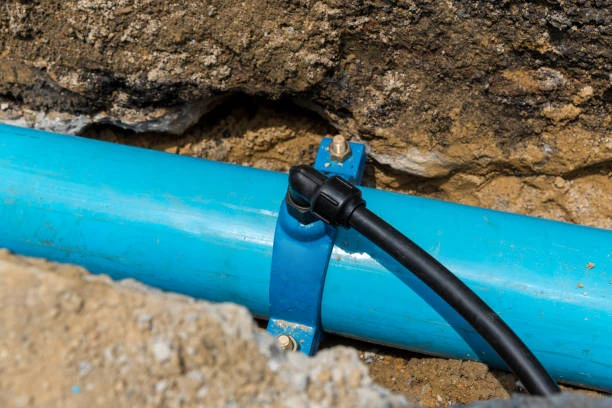Introduction: The Importance of an HDPE Pipe Plant
The delayed HDPE pipe plant in Alabama represents a major step for infrastructure and sustainable construction. HDPE pipes offer superior flexibility, durability, and environmental advantages compared to traditional materials. This new plant highlights the growing demand for high-quality HDPE solutions in diverse industries.
Why the HDPE Pipes Plant in Alabama Matters
Alabama’s new HDPE pipe plant will serve critical infrastructure needs. HDPE pipes support water management, irrigation, and underground systems. The location in Alabama ensures accessibility to growing markets in the Southeast. Local production will reduce costs and improve supply chain efficiency for contractors and industries.
HDPE Pipe Plant Drives Innovation in the Industry
Colclasure’s HDPE pipe plant will introduce advanced manufacturing processes. These innovations include extrusion techniques that improve pipe performance and lifespan. The facility will also focus on eco-friendly production methods, reducing the environmental impact of pipe manufacturing. This plant aims to set new industry standards for efficiency and quality.
HDPE Pipes Plant Meets Rising Demand for Durable Pipes
Global demand for HDPE pipes continues to grow due to their unique properties. HDPE pipes resist corrosion, withstand extreme conditions, and last longer than PVC. The Alabama HDPE pipe plant will meet this demand by producing reliable, high-performance pipes for construction, agriculture, and mining projects.
HDPE Pipe Plant Boosts Local Economy in Alabama
The HDPE pipe plant will bring significant economic benefits to Alabama. The facility will create local jobs, boosting employment in the region. Additionally, increased production will attract investment in related industries, further stimulating the local economy. Alabama is poised to become a hub for HDPE pipe manufacturing.
How the HDPE Pipes Plant Supports Sustainability Goals
Sustainability drives the development of the HDPE pipe plant in Alabama. HDPE pipes are recyclable and have a lower carbon footprint than other materials. By producing HDPE locally, the plant will reduce transportation emissions and promote sustainable infrastructure projects across the Southeast.
HDPE Pipe Plant Facilitates Better Water Management
HDPE pipes play a vital role in efficient water management systems. The new plant will produce pipes for irrigation, sewage, and drainage systems. These pipes prevent leaks and ensure durability, improving water distribution and reducing waste. Alabama’s agriculture sector will greatly benefit from these advancements.
HDPE Pipes Plant Delivers High-Performance Products
Colclasure’s HDPE pipe plant will focus on manufacturing top-quality products. HDPE pipes are known for their exceptional resistance to chemicals and impact. The facility will produce pipes that exceed industry standards, ensuring reliability in demanding applications like gas distribution and industrial fluid transfer.

HDPE Pipe Plant Promotes Long-Term Infrastructure Solutions
The Alabama HDPE pipes plant will play a crucial role in enhancing infrastructure resilience by providing reliable and high-quality materials. HDPE pipes are widely recognized for their durability, flexibility, and resistance to environmental factors such as corrosion, chemical exposure, and temperature fluctuations. These qualities make them ideal for long-term infrastructure projects that require materials capable of withstanding decades of use without significant degradation.
By producing these pipes locally, the Alabama plant will ensure a consistent and readily available supply for large-scale projects, reducing dependency on imports and minimizing delays caused by transportation challenges. This will not only lower costs for contractors but also support faster project completion, which is critical for developing and maintaining essential infrastructure systems.
The use of HDPE pipes is particularly beneficial for highways, bridges, and utility networks, where durability and reliability are paramount. For example, in highway drainage systems, HDPE pipes can efficiently manage water flow, preventing flooding and erosion that could compromise structural integrity. In utility networks, HDPE pipes provide a safe and long-lasting solution for transporting water, gas, and other resources without the risk of leaks or contamination.
Furthermore, the local manufacturing of HDPE pipes aligns with sustainable development goals by reducing the carbon footprint associated with transportation and promoting environmentally friendly practices. The Alabama plant’s contribution to infrastructure projects will not only support the region’s growth but also set a standard for modern, resilient, and sustainable construction practices across the United States.
HDPE Pipes Plant Reduces Costs for Contractors
Contractors will benefit from the HDPE pipes plant through reduced costs and faster delivery times. Local production will minimize transportation expenses, ensuring affordable pricing. The plant will also maintain a consistent supply of HDPE pipes, allowing contractors to meet project deadlines with ease.
Conclusion: HDPE Pipe Plant Brings Opportunities to Alabama
The new HDPE pipes plant in Alabama marks a significant milestone for the construction and infrastructure industries. By producing high-quality, sustainable pipes locally, Colclasure will meet rising demand and drive economic growth. The facility promises to revolutionize pipe manufacturing while supporting long-term infrastructure solutions.
FAQs: Frequently Asked Questions About the HDPE Pipes Plant
1. What makes HDPE pipes better than PVC pipes?
HDPE pipes are more flexible, durable, and resistant to chemicals than PVC pipes.
2. How will the HDPE pipes plant impact Alabama’s economy?
The plant will create jobs, attract investment, and boost local industries.
3. What industries benefit most from HDPE pipes?
Construction, agriculture, mining, and water management industries benefit significantly from HDPE pipes.
4. Are HDPE pipes environmentally friendly?
Yes, HDPE pipes are recyclable and have a lower carbon footprint than traditional materials.
5. When will the HDPE pipes plant in Alabama begin production?
The opening date is yet to be announced, but the plant will start production soon.

















